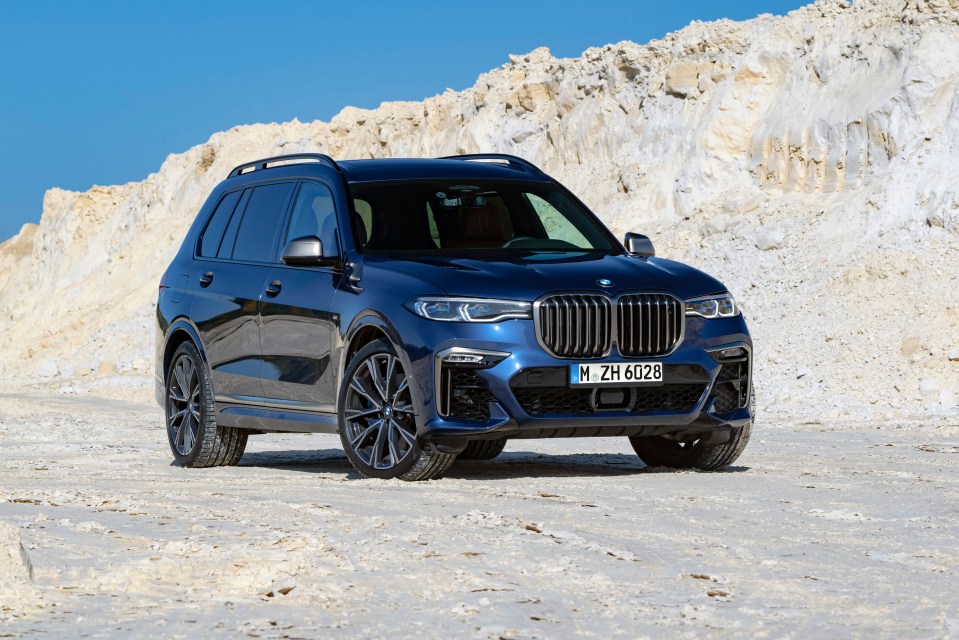Upcoming Car Tax Increases: What You Need to Know

The looming increase in car tax is set to affect owners of the most polluting vehicles, with changes coming into effect on April 1, 2025. This overhaul in the Vehicle Excise Duty (VED) will see over 60 different vehicle types facing a staggering rise in their tax rates, with some drivers potentially paying nearly £3,000 more per year.
From next month, any car that emits more than 255g/km of CO2 will incur an additional charge of £2,745, which means that for certain high-emission vehicles, the VED could soar to an eye-watering £5,490. Furthermore, the expensive car supplement, applicable to vehicles valued over £40,000 when new, will see a rise of £15, bringing the total to £410. This additional fee is applicable from the second through the sixth year of a car’s lifespan on the road.
For vehicles manufactured between 2001 and 2017, the tax is determined by their emissions. Under the new rules, diesel cars will face an average tax increase of £1,114, while petrol vehicles will see an average hike of £503. Hybrid vehicle owners will experience an increase ranging from £135 to £327, depending on their specific model.
Chancellor Rachel Reeves announced these VED changes during her Autumn Statement, emphasizing her goal to enhance incentives for purchasing zero-emission and electric vehicles by making petrol and diesel cars more expensive. However, it’s worth noting that all zero-emission electric vehicles, including popular models like Tesla’s Model Y, will also be subjected to VED starting April 1. Fortunately, electric vehicle owners will only pay the minimum tax rate of £10.
One vehicle poised for a dramatic tax increase is the Audi A3. The most economical Audi A3 model in terms of tax will be the plug-in hybrid variant, the ’40 TFSI e S-Tronic’, which emits as little as 7g/km of CO2. In stark contrast, the high-performance RS3 variant will incur a whopping tax bill of £3,300 for a year.
Vehicles in the Highest Tax Bracket

Below is a list of vehicles that produce more than 255g/km of CO2, which places them in the highest tax category:
- Alfa Romeo Stelvio 2.9 V6 Bi-Turbo
- Audi R8 5.2 FSI V10
- Audi RS6 4.0 TFSI V8
- Audi RS7 4.0 TFSI V8
- Audi RSQ8 4.0 TFSI V8
- Audi S8 4.0 TFSI V8
- Audi SQ7 4.0 TFSI V8
- Audi SQ8 4.0 TFSI V8
- Aston Martin DB12 4.0 V8
- Aston Martin DBX 4.0 V8
- Aston Martin Vantage 4.0 V8
- Bentley Bentayga 4.0 V8
- Bentley Continental 4.0 V8
- Bentley Continental 6.0 W12
- Bentley Flying Spur 4.0 V8
- BMW Alpina XB7 4.4 V8
- BMW M8 4.4 V8
- BMW X5 M 4.4 V8
- BMW X6 M 4.4 V8
- BMW X7 M 4.4 V8
- Chevrolet Corvette Stingray 6.2 V8
- Ferrari Purosangue 6.5 V12
- Ferrari Roma 3.8T V8
- Ford Mustang 5.0 V8
- Ford Ranger 2.0 TD EcoBlue
- Ford Ranger 3.0 EcoBlue
- Ford Ranger 3.0 V6
- INEOS Grenadier 3.0P
- Jaguar F-Pace 5.0 P575 V8
- Jeep Wrangler 2.0 GME
- Lamborghini Huracan 5.2 V10
- Lamborghini Urus 4.0 V8 BiTurbo
- Lamborghini Revuelto 6.5 V12
- Land Rover Defender 90 5.0 P425 V8
- Land Rover Defender 110 5.0 P425 V8
- Lotus Emira 3.5 V6
- Maserati Levante 3.0 V6
- Maserati Levante 3.8 V8
- Maserati MC20 3.0 V6
- McLaren GT 4.0T V8
- Mercedes-Benz AMG GT 4.0 V8
- Mercedes-Benz G400D
- Mercedes-Benz G63
- Mercedes-Benz GLC63
- Mercedes-Benz GLE63
- Mercedes-Benz GLS63
- Mercedes-Benz SL55
- Porsche 718 Cayman 4.0 GT4
- Porsche 911 3.7T 992 Turbo
- Porsche Cayenne 4.0T V8
- Porsche Macan 2.9T V6
- Range Rover 4.4 P530 V8
- Range Rover 4.4 P615 V8
- Range Rover Sport 4.4P V8
- Rolls-Royce Cullinan 6.75 V12
- Rolls-Royce Ghost 6.75 V12
- Toyota Hilux 2.8D
- Toyota Land Cruiser 2.8D
- Volkswagen Amarok 3.0 TDI